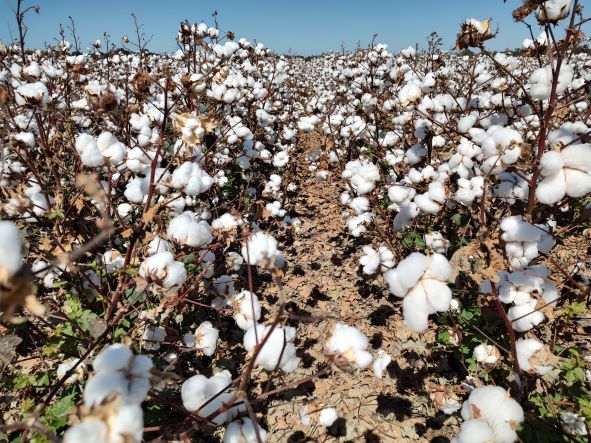Coverage of ICA Dubai 2011: From Traditional Souks to Modern Malls
As an open port with low import duties, Dubai’s retail prices are reasonable and the variety of products available matches that of any other major international city. In particular, Dubai’s residents enjoy tax-free salaries and incomes which are among the highest in the world, so there is plenty of money available for the luxuries of life, and the city’s retailers have geared up to meet this demand.
Dubai’s retail trade encompasses traditional souk (market) shopping, where bargaining is very much the order of the day, as well as modern shopping plazas.
The emirate is teeming with shopping malls and each one reveals a different theme and experience. The sprawling expanse of the malls, the innovative architecture, the designer boutiques, top brands, vast product range — from haute couture to the latest gadgets and gizmos — and an endless choice of restaurants and cafes allow visitors the option of passing an entire day within the premises of a single shopping complex.
Existing alongside modern marvels such as the shopping malls are the traditional markets, also known as the souks. With their historic structures still in place and restored to meet the demands of the present day, Dubai‘s different souks may vary in their offerings and character, but are all alive with the buzz of trade and the spirit of a strong and traditional past.
A visit to the souk, alive with noise, crowds and atmosphere, is a memorable experience, especially at night, when a myriad of neon lights act as beacons, guiding the uninitiated through a maze of alleyways and encouraging potential customers to sample wares and indulge in good-natured bargaining.
With your wits about you and armed with a sense of humor, souk shopping can be entertaining as well as profitable. The sheer variety of goods available is bewildering. Stores teeming with the latest in electronics stand comfortably alongside huge fabric houses offering silks from India. Cut-price hi-fi tapes and discs are a favorite buy.
Somewhat incongruously, in the midst of this treasure trove of 20th century materialism, lie small booth-type shops where the traditional goods of the east can still be weighed and measured. Spices brought in by dhow from India, Sri Lanka and Zanzibar permeate the air, and perfumed oils are stored ready to be mixed to personal demands. Delicately woven carpets lie strewn for detailed inspection and weighty hookah pipes fill available corners.
Gold, the traditional wealth standard of the east, is another of the city’s best buys. Dubai’s gold trade has flourished for centuries. The Gold Souk in Deira is a tribute to the metal’s eternal attraction. Housing row after row of shop windows festooned with glittering jewelry and ornaments, this unique market has become a major tourist attraction. Here 18 and 22 carat gold is beaten, worked and fashioned into a cascade of designs calculated to meet the intricacies of a variety of ethnic tastes. Prices, less than half those in the west, are mainly determined by weight and not so much by workmanship.
But the eastern charm of the souks is only one aspect of shopping in Dubai. Attractive modern shopping plazas are conveniently located throughout the city. Marble-walled malls and efficient air conditioning provide a cool welcome to customers. Cosmopolitan stores maintain an affinity with the emirate’s international population and appeal. Designer label boutiques sit comfortably alongside trend-setting clothing supermarkets jammed with cottons from India.
Travelling out of town, toward the towering Trade Centre landmark, is another shopping delight frequented by tourists and residents: the Karama district. A sprawling array of small shops and restaurants, Karama is a bargain-hunter’s playground. Soaking up the atmosphere, you can browse and choose from shoes made in Lebanon, T-shirts from Thailand and handbags from China. The fish, fruit and vegetable markets of Karama and Hamriya are ideal tourist haunts with lively photographic opportunities. The variety of fish, which is sold by the kilo, is intriguing. Hammour, large enough to fire the imagination of any angler, glare open mouthed from stone slabs surrounded by baby shark, red snapper and tiger prawns. The fruit and vegetable markets are no less colorful and imports from Asia, Europe and the Mediterranean highlight the emirate’s trading links.
The Dubai shopping scene offers something for everyone. Apart from competitively priced electronic products, watches, cameras and other international items, popular traditional gifts include Arabic coffee pots; silver and brass swords and “khunjars” (Arabic curved daggers); prayer beads; soapstone figures; coasters and other items decorated with lapis lazuli, turquoise, malachite and other semi-precious stones; marble goblets; silver antique jewelry from Oman and Yemen, as well as locally made items; brass and silver work; silver and wooden dhows; Persian carpets and cotton dhurries (oblong floor coverings) and a multitude of other ethnic items.
Dubai’s shopping potential extends right up to the journey home. First opened in 1983, Dubai Duty Free has won a number of international awards and is recognized in the industry and by the travelling public alike as offering a superlative range of high-quality products at unbeatable prices.
Cargoes from the east have found ready markets in Dubai for years, now they are being augmented with the very best the world has to offer to tempt even the most sophisticated tastes. It is no mean boastful for a shopkeeper to say, “If you cannot find something in Dubai, you probably won’t find it anywhere.”|
Shopping Hours
Normal Dubai hours are from 9:00 am to 1:00 pm and 4:00 to 9:00pm (or later). Some boutiques in the residential areas do not open until 9:30 or 10:00am. Shopping malls tend to open from 10:00am–10:00pm. Most supermarkets stay open until late at night seven days a week, while some remain open 24 hours. Shops close for prayers on Fridays from 11:30am to 1:30pm. Shopping malls and most shops are open on Friday evenings until late.
Bargaining
Bargaining is part of the fun of shopping in Dubai. While boutiques, some electronics shops, department stores and supermarkets may operate on a fixed-price basis, most other outlets consider friendly negotiation as a way of life.
Popular Gifts
The Dubai shopping scene offers something for everyone. Apart from competitively-priced electronics products, watches, cameras and other international items, popular traditional gifts include:
- Arabic coffee pots
- Silver and brass swords and khanjars (Arabic curved daggers)
- Prayer beads
- Soapstone figures
- Coasters, letter racks, jewelry boxes, chests etc, decorated with lapis lazuli, turquoise, malachite and other semi-precious stones
- Marble goblets
- Antique silver jewelry
- Brass items
- Silver and wooden miniature dhows
- Persian carpets and cotton dhurries (oblong floor coverings)
- Inlaid rosewood and walnut furniture
Information and photos provided courtesy of Dubai’s Department of Tourism and Commerce Marketing. For more information, please visit the Web site.









